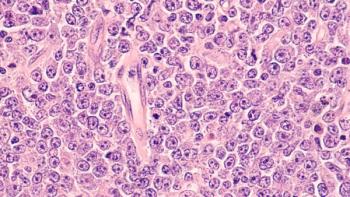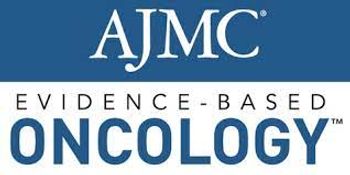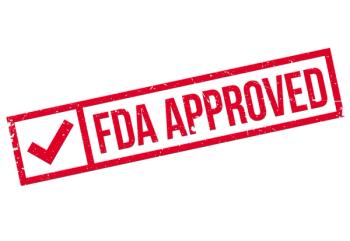
Mirvetuximab soravtansine continues to show efficacy and safety in the final analysis of the phase 2 PICCOLO study.

Mirvetuximab soravtansine continues to show efficacy and safety in the final analysis of the phase 2 PICCOLO study.

The FDA has approved cosibelimab-ipdl for the treatment of adults with metastatic or locally advanced cutaneous squamous cell carcinoma who are not candidates for curative surgery or radiation.

Revumenib has been approved for relapsed or refractory acute leukemia with KMT2A translocation in patients aged 1 year and older.

The FDA has approved tislelizumab-jsgr (Tevimbra) for single-agent use in adult patients with unresectable or metastatic esophageal squamous cell carcinoma following prior systemic chemotherapy that did not include a PD-1/PD-L1 inhibitor.

Pembrolizumab plus chemotherapy prior to surgery, followed by resection and single-agent pembrolizumab in the adjuvant setting, significantly improved overall survival (OS) vs neoadjuvant placebo plus chemotherapy followed by adjuvant placebo in patients with resectable stage II, IIIA, or IIIB (T3-4N2) non–small cell lung cancer, meeting the dual primary end point of the phase 3 KEYNOTE-671 trial.

The FDA has granted fast track designation to IDE161 for use in adult patients with advanced or metastatic hormone receptor–positive, HER2-negative breast cancer harboring BRCA1/2 mutations who have progressed after at least 1 hormonal therapy, a CDK4/6 inhibitor, and a poly (ADP-ribose) polymerase inhibitor.

Following discussions with FDA, Takeda will voluntarily withdraw mobocertinib in the United States for adult patients with EGFR exon 20 insertion mutation–positive, locally advanced or metastatic non–small cell lung cancer (NSCLC) based on the outcomes of the phase 3 EXCLAIM-2 trial.

Subcutaneous epcoritamab produced deep and durable complete remissions in patients with relapsed or refractory (R/R) large B-cell lymphoma (LBCL), with complete responders having favorable long-term outcomes, according to updated data from the phase 1/2 EPCORE NHL-1 trial.

The FDA has granted accelerated approval to elranatamab-bcmm (Elrexfio) for the treatment of adult patients with relapsed or refractory multiple myeloma who have previously received at least 4 lines of therapy, including a proteasome inhibitor, an immunomodulatory agent, and an anti-CD38 monoclonal antibody.

The FDA approved trifluridine and tipiracil (Lonsurf) plus bevacizumab (Avastin) for patients with metastatic colorectal cancer who had previously been treated based on data from the phase 3 SUNLIGHT trial.


The phase 3 MATTERHORN trial examining roxadustat as an anemia treatment in patients with transfusion-dependent, lower-risk myelodysplastic syndrome did not meet its primary end point.

The FDA has approved flotufolastat F 18 injection for positron emission tomography of prostate-specific membrane antigen–positive lesions in certain men with prostate cancer.

The FDA has approved polatuzumab vedotin-piiq plus rituximab, cyclophosphamide, doxorubicin, and prednisone (R-CHP) for certain patients with treatment-naive diffuse large B-cell lymphoma.

The FDA has granted accelerated approval to enfortumab vedotin-ejfv plus pembrolizumab for patients with locally advanced or metastatic urothelial carcinoma who are not eligible for cisplatin-containing chemotherapy.

The FDA has granted full approval to pembrolizumab for the treatment of some patients with unresectable or metastatic microsatellite instability–high (MSI-H) or mismatch repair–deficient (dMMR) solid tumors that have progressed following previous treatment.


The FDA approved an expanded indication for abemaciclib (Verzenio) in combination with endocrine therapy for the adjuvant treatment of adult patients with hormone receptor (HR)–positive, HER2-negative, node-positive, early breast cancer that is at a high risk of recurrence.

The European Medicines Agency’s Committee for Medicinal Products for Human Use has recommended the approval of cemiplimab-rwlc in combination with platinum-based chemotherapy as frontline treatment for adult patients with advanced non–small-cell lung cancer with PD-L1 expression of 1% or higher.

The FDA has approved pirtobrutinib (Jaypirca) for the treatment of adult patients with relapsed or refractory mantle cell lymphoma following at least 2 lines of systemic therapy, including a previous Bruton tyrosine kinase (BTK) inhibitor.

Published: November 15th 2024 | Updated: November 19th 2024

Published: October 14th 2023 | Updated:

Published: March 23rd 2023 | Updated:

Published: November 15th 2024 | Updated: November 19th 2024

Published: June 2nd 2023 | Updated:

259 Prospect Plains Rd, Bldg H
Cranbury, NJ 08512
© 2025 MJH Life Sciences®
All rights reserved.
